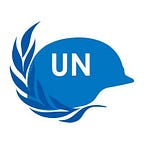Peacekeeping mission is finished in Haiti, but UN’s commitment to the country remains strong
By Jean-Pierre Lacroix, United Nations Under-Secretary-General for Peace Operations.
An important chapter of the United Nations’ peacekeeping history has come to a close in Haiti.
Our deployment in Haiti spanned more than 15 years, the time marked by many joint achievements for the UN and the Haitian people. But it also was marked by the tragedy of a devastating earthquake in 2010 and a series of lessons learned as to what we did well and what we could have done better.
Today, as we collectively reflect on all of these aspects, we see not an ending but the beginning of the next chapter of the UN’s partnership with Haiti. The peacekeeping operation’s closing in Haiti does not mean that the UN’s support of the country will cease. Indeed, it will adapt and continue in another form as the Bureau Intégré des Nations Unies en Haiti (BINUH), starts its operations alongside the entire UN country team.
Right now, the country faces a political crisis, civil unrest and very real socioeconomic challenges. These, in turn, affect the security environment, which further feeds political instability — a cycle that the country has seen, tragically, many times before.
When we look back, however, we also can see how far we’ve traveled. In 2004 ,when our peacekeeping mission — known as MINUSTAH — deployed, the country was on the brink of collapse, with political instability, a dysfunctional police force and almost non-existent state authority. Vicious narcogangs controlled entire neighborhoods of the capital, Port-au-Prince.
Fifteen years on, homicide rates have dropped by almost 50 percent, a result in large part of concerted efforts to vet, recruit and train Haitian National Police (HNP) personnel. Since 2004, the number of Haitian police recruited have jumped from 2,500 to more than 15,000 today, doubling the police-to-population ratio. Of the total number of police deployed, more than 10 percent are women.
National human-rights institutions are also able to function independently and better protect citizens, and key legislation has been put into effect, dealing with legal aid and the judiciary.
Although prison overcrowding remains a major concern, progress has been made to address the judicial backlog, notably in the capital, where the prolonged pretrial detention rate has dropped by 14 percent during the past two years.
The $7.5 billion invested by the international community toward the country’s stabilization over 15 years of peacekeeping represents a fraction of global costs that the unfolding crisis would have triggered in 2004, had a U.N.-backed multilateral effort not been launched.
But peacekeeping is not — and never can be — the sole answer.
The achievements of UN peacekeeping do not mask the fact that Haiti continues to need the support of the international community and the United Nations. Too many Haitians still live in poverty, the rule of law and security sectors are nascent and fragile. True stability remains elusive.
As UN peacekeeping wraps up in Haiti, we also remember the difficult parts of MINUSTAH’s legacy and those who have been adversely affected by it. The end of peacekeeping does not put an end to the work of the United Nations in eliminating cholera.; nor does it put an end to our efforts to address sexual exploitation and abuse and related paternity cases.
The sustained efforts to support the government of Haiti to eliminate the transmission of cholera and alleviate the suffering of the Haitian people remain a key focus of the United Nations, under the leadership of Special Envoy for Haiti Josette Sheeran. These efforts have led to enormous progress.
The United Nations will also continue to address pending sexual exploitation and paternity cases from the peacekeeping period and provide support to the victims and their families. We will work with national authorities and institutions in Haiti and other concerned member states to ensure that the rights and dignity of the victims remain at the center of all our efforts.
Haitians have faced enormous hardships over the years and they continue to face challenges today. At the same time, they have consistently demonstrated remarkable resilience and an ability to adapt to and overcome these prodigious obstacles.
I believe peacekeeping in Haiti opened space for political and democratic processes to take place, however nothing can substitute political solutions led by local actors. Many of the causes of socio-economic and security problems are related to political factors. The two consecutive peacekeeping missions, MINUSTAH and MINUJUSTH, invested in promoting political solutions to such issues, while simultaneously addressing many other challenges.
The transition from peacekeeping is now an opportunity to refocus the priorities of the UN system and how it provides the right support at the right time for Haitians.
The UN’s renewed presence in Haiti following the closure of MINUJUSTH is well tailored to the needs on the ground. It embraces an integrated approach that includes the role of the newly deployed special mission, BINUH, focusing on political solutions, and the UN humanitarian and development agencies focusing on a range of tasks to support the people of Haiti.
The UN remains fully committed to the Haitian people and this engagement, along with full national ownership and accountability. It will support the country’s vision for stability and prosperity. Now is the time for all our potential partners to redouble our collective commitment to the people of Haiti.
Too much is at stake for us to fail.
This piece originally appeared in the Miami Herald. The author is the United Nations Under-Secretary-General for Peace Operations. Follow him on Twitter at @Lacroix_UN.
